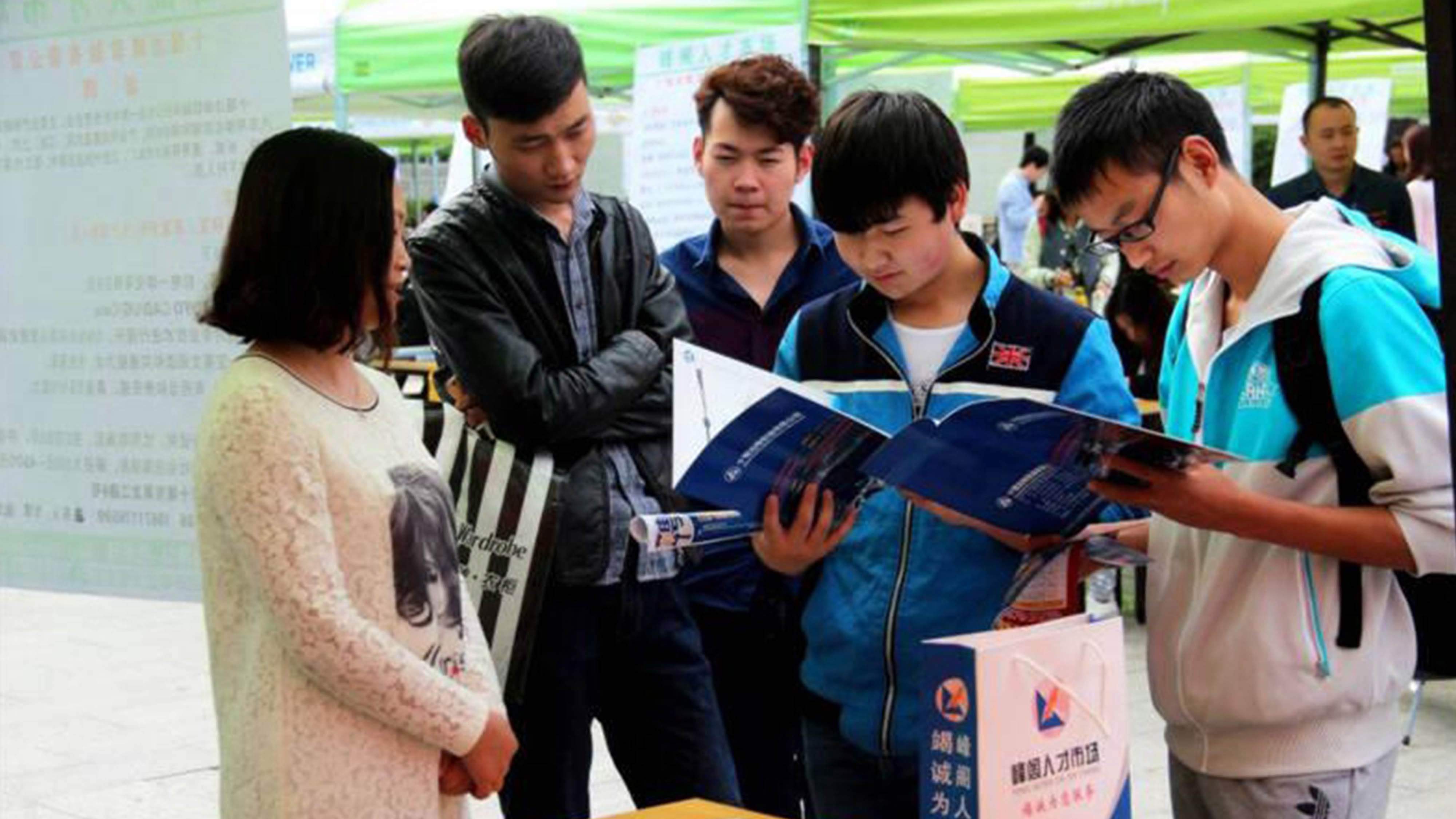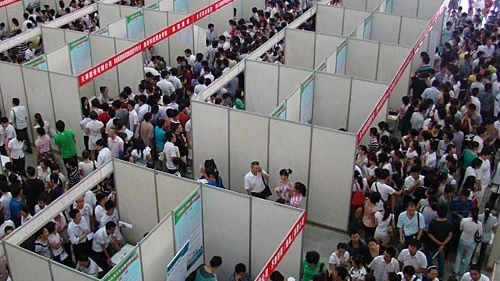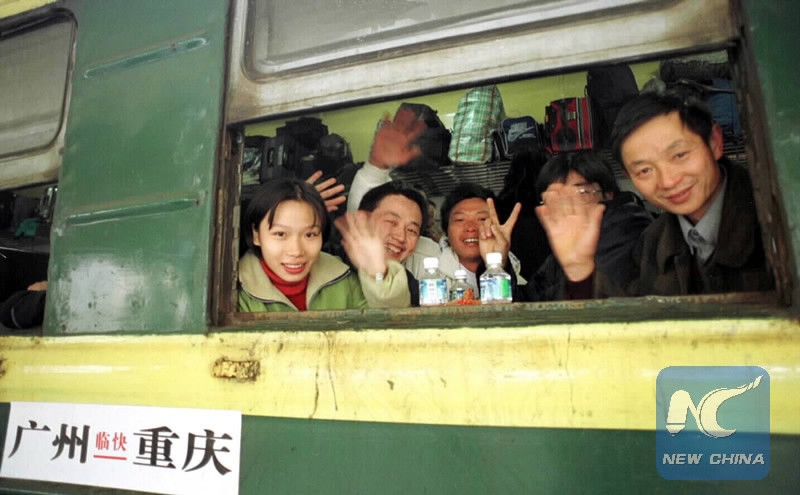
China
12:09, 14-Sep-2017
China Footprint: Employment in the most populous nation
By Jim Spellman, Andrew Smith, Hu Ying

China's economy has developed quickly in the past decades, but providing jobs for the world's largest population remains a tremendous challenge.
Last year, about 7.65 million students graduated from universities and colleges, and 169 million people, mainly fro rural area, flocked to Chinese cities in search of jobs, with many becoming migrant workers there. Besides, employers have raised their demands for ideal employees as well.

People hunt for jobs at a job fair./ Chinanews Photo
People hunt for jobs at a job fair./ Chinanews Photo
Several new phenomena are appearing in China's job market:
'Delayed employment'
Chen Zhengting graduated from college a year ago, but she has not found an ideal job yet. She's now teaching as a part-timer and learning new skills. There's a new phrase for describing her situation: "Delayed employment." It's similar to "gap year" in western counties.
"Some choose 'delayed employment' on their own initiatives but I have chosen it passively," said Chen. Her dream is to find jobs in investment banking or venture capital, but she knows it's very competitive. "There are too many excellent graduates in Beijing," she said.
Migrant workers request better income
Chinese migrant workers are widely believed to be a group of people who work in poor working conditions for low wages. However, as China's economy has become more sophisticated, the situation for migrant workers has also been improving.

Passengers leave Guangzhou City for their hometown Chongqing City. /Xinhua Photo
Passengers leave Guangzhou City for their hometown Chongqing City. /Xinhua Photo
Migrant workers used to work in east coastal cities like Guangzhou. Now, as second-tier or third-tier inland cities are rapidly developing, many choose to work in cities near their homes. Thus, the number of laborers in east coastal cities decreased, and it became a serious issue, especially in 2014. Since then, migrant workers in big cities have started to request higher salaries and better living conditions.
Employers' higher demands
Employers now request more from their employees as well, due to an average of 7 million graduates rushing into the job market every year, but the lack of innovation and experience makes it difficult for them to find an ideal job in a short time. Besides, migrant workers are also requested for more specialized skills – a frustrating situation for many with inadequate education.
Previous episodes:

SITEMAP
Copyright © 2018 CGTN. Beijing ICP prepared NO.16065310-3
Copyright © 2018 CGTN. Beijing ICP prepared NO.16065310-3